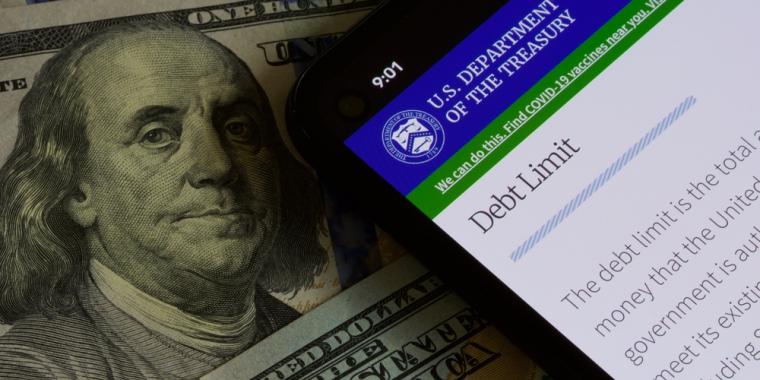
Debt Limit Situation Poses Threat to Government Operations
This month, the outstanding debt of the United States reached the statutory limit. The Treasury Department has begun taking “extraordinary measures” to prevent the U.S. from defaulting on its financial obligations. This includes suspending investments in the Civil Service Retirement and Disability Fund as well as reinvestment of Treasury securities held by the TSP’s G-Fund until Congress acts to raise the debt limit. By law, the funds will be made whole once the debt limit has been raised. Federal employees will not be affected by these actions.
Treasury Secretary Janet Yellin has urged Congress to raise the debt limit as soon as possible. If the debt limit is not raised by the time the extraordinary measures are exhausted, the Treasury will be unable to continue paying the nation’s bills and the federal government will have to at least temporarily default on many of its obligations. Raising the debt limit does not authorize new government spending, but rather allows the government to finance existing legal obligations, including Social Security and Medicare benefits, military salaries, interest on the national debt, tax refunds, and other payments.
House Republican leaders have indicated that they plan to take advantage of the need to increase the federal government’s borrowing cap to attempt to force spending cuts to various programs. As the House was engaged in voting for speaker earlier this month, Representative Ralph Norman (R-SC) was reported as saying that the speaker needs to commit to using government shutdown and debt ceiling default threats to cut spending and to follow through on threat if needed. Given negotiations over the debt limit in the past, it is likely that federal employee pay and benefits could also be targeted for cuts.
The U.S. has never defaulted on its debt obligations before so it is unclear how the government would operate if that should occur. Because typical spending outpaces the revenue the Treasury Department brings in on a given day, the federal government would only be able to pay 60% of its bills in a given month of a default scenario, according to a Bipartisan Policy Center estimate.
Analysts have sketched out two possible outcomes during a default: the government would either delay payments until it collected enough revenue to cover them, or prioritize some payments while allowing others to go unpaid. In either scenario, agency payments to beneficiaries, states, grantees, contractors and, potentially, their own employees, could be disrupted--meaning that it is possible that some federal workers could be furloughed or asked to continue working on the promise of back pay in the future. In any event, even approaching such scenarios could disrupt the markets and plunge the nation into a recession.
Earlier this month, the Washington Post reported that House Republicans are preparing a plan telling the Treasury Department what to do if Congress and the White House are unable to lift the nation’s debt limit later this year. This payment prioritization plan, which was part of the private deal reached to resolve the standoff over the election of a House Speaker, is still being drafted, but is expected to call on the Biden Administration to make only the most critical federal payments, such as interest payments on the debt. The prioritization plan is also rumored to stipulate that the Treasury Department should continue making payments on Social Security, Medicare and veterans’ benefits, as well as funding the military. Such a hypothetical proposal would still leave out huge swaths of critical federal expenditures on things such as Medicaid, food safety inspections, border control and air traffic control, to name just a handful of the thousands of programs that could be impacted.
While it is unclear when the Treasury Department will exhaust its ability to use extraordinary measures to stay within its borrowing limit, Secretary Yellen said it is unlikely to occur before early June.
As Congress and the White House begin discussion on the debt limit, NTEU will continue the fight to protect employee pay and benefits and ensure that the government does not default on its obligations.
